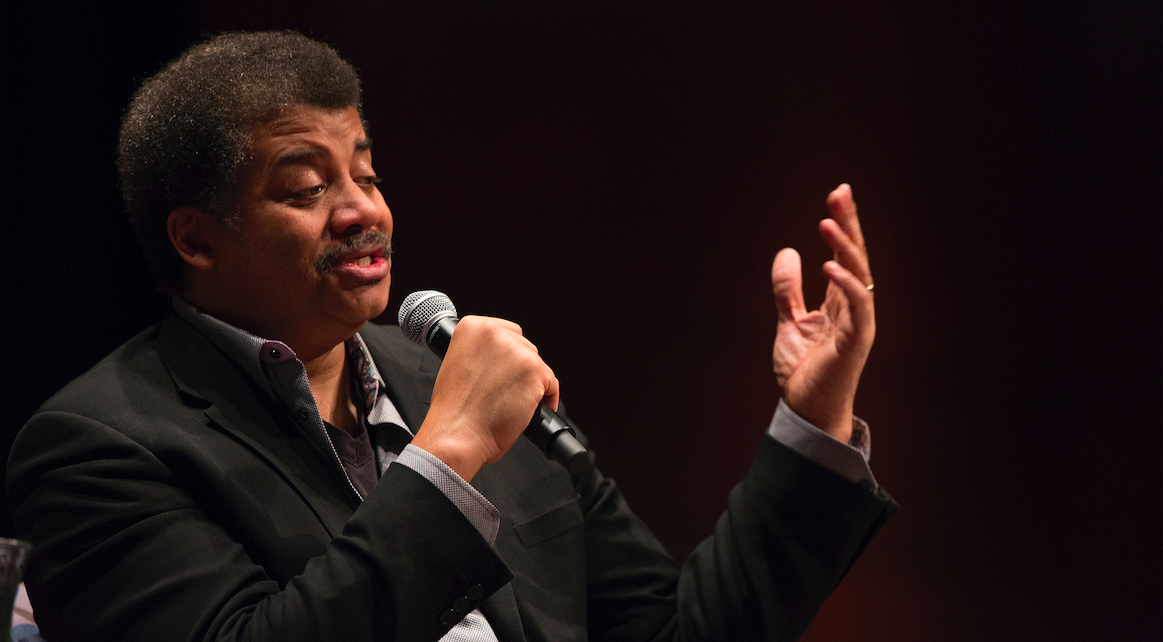
Gravity keeps you young and other things we learned from Neil DeGrasse Tyson
As Chicago Ideas prepares for its event on Thursday, May 11—The Future of Intelligence: Human, Machine and Extraterrestrial—we’ve pondered what we can first learn about the present moment before diving into the future. In March, we hosted a Facebook Live chat between renowned astrophysicist Neil DeGrasse Tyson and astronaut Jim Lovell who, quite famously, was the commander of Apollo 13 and has flown to the moon on two separate occasions.
During the q-and-a, the pair riffed on facts that are common knowledge to them but feel downright revelatory when space travel isn’t your stock-in-trade. Here’s what jumped out to us.
Abraham Lincoln is a science icon
In 1863, in the middle of the American Civil War, Lincoln would establish the National Academy of Sciences, a nonprofit, non-governmental organization that is meant to provide objective, fact-based advice to the leaders of the nation. In fact, the reason both Tyson and Lovell were in Chicago was for the Lincoln Leadership Dinner, at which Tyson would receive the Lincoln Leadership Prize—an honor bestowed upon Lovell in 2010.
Gravity keeps you from aging—at least a little bit
As Lovell joked, going into space can slow down the aging process, at least in theory. Dr. Tyson noted that while this is true, it’s effects are often negligible. This all relates back to Albert Einstein’s theory of relativity, the general concept being that time doesn’t move at a steady rate, so if you’re in a space ship traveling 250,000 miles-per-hour, time slows down—in essence, slowing the aging process along with it. But gravity works in the reverse, as being further from gravity’s pull speeds up the aging process. Lovell noted that because of all his space travel, he’s actually a hair older than he should be. Though Tyson was happy to remind him that—at most—he’s only being shortchanged a few seconds.
Your GPS uses Einstein’s theory of relativity to accurately tell the time
In a similar phenomenon to the one above, since time isn’t a fixed property, GPS satellites have to account for Einstein’s theory of relativity when telling the time. Since the distance from a satellite in the sky to the GPS in your car is a pretty sizable distance, cut it some slack if it’s ever a couple minutes off.
The moon is constantly moving away from the Earth
For as long as there has been a moon in the night sky it’s been slowly moving away from Earth. It’s not something that happens at a dramatic rate, but the moon slips a few inches farther into the cosmos every year. Though the rate at which the moon recedes has slowed as time has gone on, it’s not completely stopped either.




